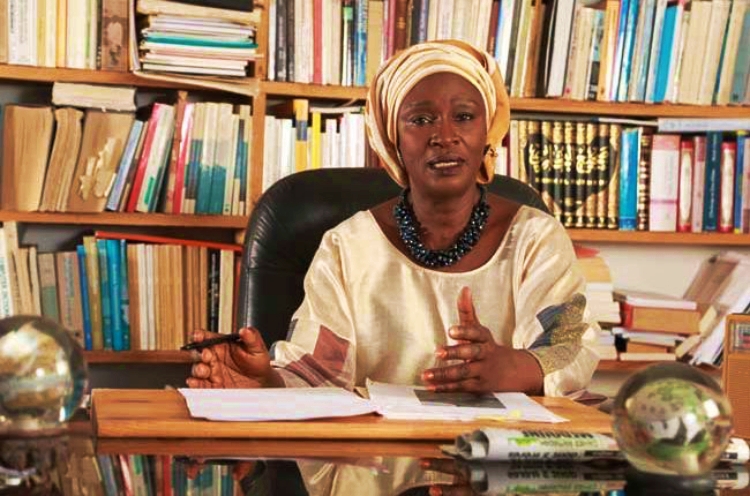Gambiaj.com – (DAKAR, Senegal) – Senegal’s new foreign policy, billed as a radical shift from past practices, is facing mounting criticism following a string of diplomatic setbacks. Since President Bassirou Diomaye Faye and Prime Minister Ousmane Sonko assumed power in March 2024, their administration has suffered repeated failures in international appointments, raising questions about the coherence and effectiveness of the country’s new diplomatic direction.
In the past few months, three high-profile Senegalese candidates have lost their bids for key international positions. Ibrahima Socé Fall failed to secure the top post at the World Health Organization’s Africa office, Amadou Hott lost the race to head the African Development Bank, and Augustin Senghor was unsuccessful in his run for a seat on the Executive Committee of the Confederation of African Football.
These defeats mark a break from Senegal’s traditional reputation as a small yet diplomatically respected nation. “Senegal may be modest in population and GDP, but it has always commanded respect on the global stage,” said opposition politician and former minister Modou Diagne Fada in comments reported by Jeune Afrique.
“Since this new government took over, we are losing key international competitions – sometimes due to a lack of proper support.”
At the center of the controversy is Foreign Minister Yassine Fall, whose leadership style and decisions have been sharply criticized by diplomats and insiders. According to Jeune Afrique, critics cite bureaucratic missteps, insufficient support for candidates, and a perceived lack of professionalism.
In Amadou Hott’s failed bid for the AfDB presidency, a senior diplomat claimed Fall sidelined the usual inter-ministerial task force and chose to run the campaign single-handedly – a move seen as counterproductive.
One particularly controversial decision was the elimination of the Department for Partnerships and the Promotion of Economic and Cultural Diplomacy (DPPEC), which had been a vital component of Senegal’s international economic engagement since its creation in 2014.
Analysts say its closure has undermined Senegal’s economic diplomacy at a time when soft power and financial influence are more critical than ever.
Ministerial appointments have also sparked concern. The reassignment of Africa and African Union Director Sylvain Sambou to the Senegalese embassy in Russia – far from his area of expertise – and the posting of Asia and Middle East Director Ousmane Diop to Congo-Brazzaville are being criticized as poorly considered.
One incident early in Fall’s tenure illustrates the disconnect between the new administration and Senegal’s diplomatic establishment.
According to Jeune Afrique, career diplomats were summoned to a meeting where young Pastef party activists were invited to lecture the diplomats on pan-Africanism and how it should guide foreign policy. The event reportedly caused considerable discomfort.
“How can you bring in political activists to teach seasoned diplomats about diplomacy?” asked one senior ambassador anonymously, calling the event a “serious early misstep.”
Prime Minister Sonko has also stirred controversy. In June, he abruptly cancelled a planned trip for Senegal’s women’s basketball team to the U.S. after some players were denied visas.
He used the moment to emphasize a new foreign policy doctrine based on “free, balanced cooperation rooted in mutual respect and shared benefit.” While ideologically consistent with Pastef’s platform, some observers argue the message could have been delivered more diplomatically.
“There was no need for that statement,” said a former senior UN official. “He’s not entirely wrong in substance, but diplomacy is often about finesse – not grandstanding.”
The ruling party stands by its approach. “Showy diplomacy achieves nothing,” said Pastef lawmaker Amadou Ba.
“Our party has always argued that this kind of superficial diplomacy only feeds egos with no tangible results. Our new paradigm is to prioritize our immediate surroundings – Africa – both for practical and ideological reasons.”
Presidential adviser Aminata Touré played down the defeats. “International appointments are like football matches. You can’t win all the time,” she said.
Still, critics say the inexperience of the new leadership is evident. While President Faye is reportedly respected by his peers, a former minister in the previous administration told Jeune Afrique: “Diomaye Faye doesn’t yet have the stature of Macky Sall. Diplomacy is about networks and charisma. Like it or not, it’s deeply personal.”
As the new Senegalese government attempts to define its identity on the world stage, its breakaway diplomacy will need to deliver results – or risk undermining the very influence it seeks to reclaim.










